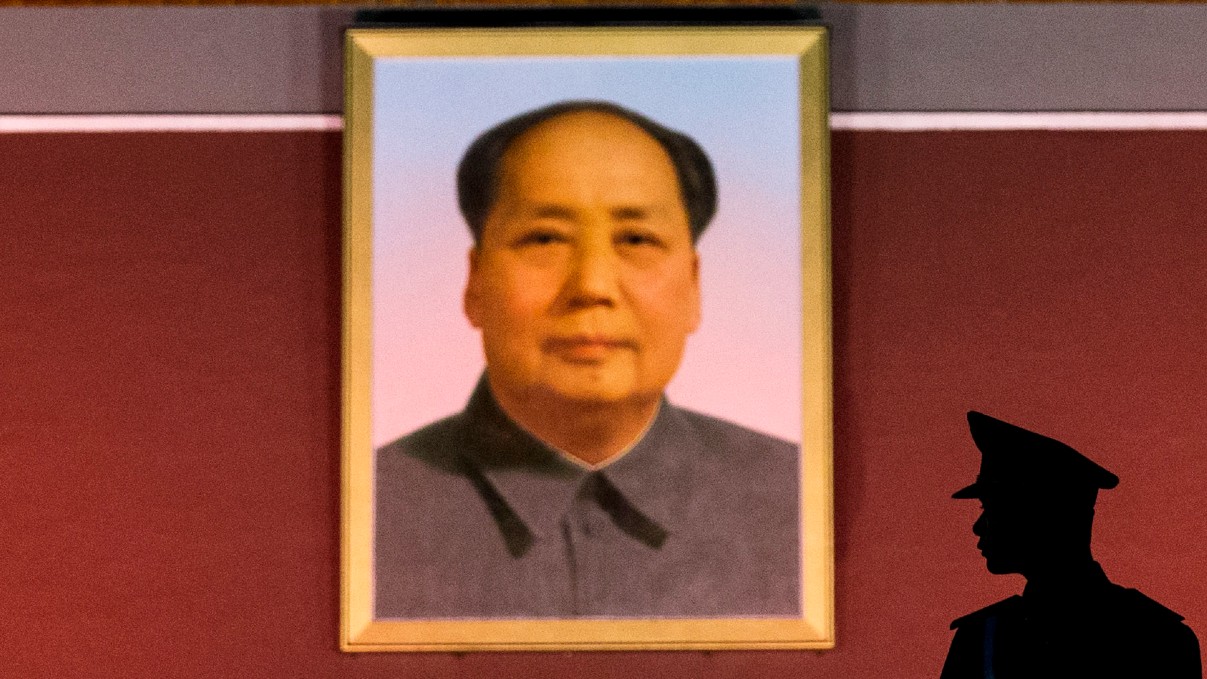China's vast intelligence network
Cyber capabilities and old-fashioned human intelligence operate in 'fundamentally different way from those in the West – in nature, scope and scale'

A free daily email with the biggest news stories of the day – and the best features from TheWeek.com
You are now subscribed
Your newsletter sign-up was successful
The government is under pressure from MI5 to designate China a threat to national security after an alleged spy with links to the Duke of York was identified yesterday. The security service has previously said that Beijing is engaged in spying on an "epic scale", with espionage a "central component of its national strategy".
What does Chinese 'spying' consist of?
For years, China has sought to use "every means and medium of intelligence-gathering at its disposal against the West", said historian Calder Walton on Foreign Policy. "Its strategy can be summarised in three words: collect, collect, collect."
It does this by gathering vast amounts of data from "government websites, parliamentarians, universities, thinktanks and human rights organisations", while also targeting "diaspora groups and individuals", said Nigel Inkster in The Spectator.
The Week
Escape your echo chamber. Get the facts behind the news, plus analysis from multiple perspectives.

Sign up for The Week's Free Newsletters
From our morning news briefing to a weekly Good News Newsletter, get the best of The Week delivered directly to your inbox.
From our morning news briefing to a weekly Good News Newsletter, get the best of The Week delivered directly to your inbox.
Led by the nominally civilian Ministry of State Security, which is responsible for domestic security, counterespionage and collecting foreign intelligence, China has over the past 20 years "deepened its cyber capabilities, while building on old-fashioned human intelligence operations".
How widespread is the network?
In the UK, for example, personal details of millions of voters were accessed through a Chinese-origin cyberattack on the Electoral Commission in August 2021. MPs have been targets and this week Chinese businessman Yang Tengbo was named as the alleged Chinese spy who had developed close links with Prince Andrew and had then been banned from the UK. Business professionals on networking sites such as LinkedIn have also been approached "in order to try to cultivate them to provide sensitive information", said the BBC.
China's intelligence agencies "appear to have fewer constraints" than they once did about "recruiting foreigners and using techniques such as honey-traps", said The Spectator. Even foreign students in China are being approached "in the hope that they can, in time, be manoeuvred into positions of influence within their home countries".
You could argue this is just par for the course for a major power such as China with global ambitions – the US, UK and others have been doing this for decades. But China's intelligence services operate in a "fundamentally different way from those in the West – in nature, scope and scale", said Foreign Policy.
A free daily email with the biggest news stories of the day – and the best features from TheWeek.com
What is China's end game?
Some of the work of the Ministry of State Security focuses on monitoring and suppressing anti-regime activity and actors. But increasingly it is focused on extracting information from foreign governments, individuals and businesses.
The Chinese Communist Party's "tentacles are everywhere," said The Telegraph in an editorial in March, "seeking to siphon up cutting-edge technology and interfering in the democratic political processes of dozens of countries".
What sets China apart from say Russia is that it has made "economic espionage and stealing others' work and ideas a central component of its national strategy", FBI Director Chris Wray told a Five Eyes alliance meeting in October last year.
With harvested data used for everything from biomedical and biowarfare research to training Chinese large-language AI models, there are consequences not just for companies' profitability but also for the future of Western countries, McCallum said.
Yet "for all the outrage", the response from Western leaders has so far been "surprisingly mild", said The Telegraph. "One reason for this circumspection is that however insidious the activities of the Chinese state, its economy is deeply intertwined with our own."
Loosening Western economies from China would be "unrealistic and damaging", said the BBC, so instead the priority must be "to identify and protect sensitive areas".
"This is not (yet) another Cold War", said The Spectator. "It's important to discuss the nature of the challenge China poses without creating a mood of latter-day McCarthyism, or suggesting that everyone of Chinese ethnicity should become the subject of distrust."
-
 How the FCC’s ‘equal time’ rule works
How the FCC’s ‘equal time’ rule worksIn the Spotlight The law is at the heart of the Colbert-CBS conflict
-
 What is the endgame in the DHS shutdown?
What is the endgame in the DHS shutdown?Today’s Big Question Democrats want to rein in ICE’s immigration crackdown
-
 ‘Poor time management isn’t just an inconvenience’
‘Poor time management isn’t just an inconvenience’Instant Opinion Opinion, comment and editorials of the day
-
 What is ‘Arctic Sentry’ and will it deter Russia and China?
What is ‘Arctic Sentry’ and will it deter Russia and China?Today’s Big Question Nato considers joint operation and intelligence sharing in Arctic region, in face of Trump’s threats to seize Greenland for ‘protection’
-
 Is the Chinese embassy a national security risk?
Is the Chinese embassy a national security risk?Today’s Big Question Keir Starmer set to approve London super-complex, despite objections from MPs and security experts
-
 Did Trump just end the US-Europe alliance?
Did Trump just end the US-Europe alliance?Today's Big Question New US national security policy drops ‘grenade’ on Europe and should serve as ‘the mother of all wake-up calls’
-
 Taiwan eyes Iron Dome-like defence against China
Taiwan eyes Iron Dome-like defence against ChinaUnder the Radar President announces historic increase in defence spending as Chinese aggression towards autonomous island escalates
-
 Why did the China spying case collapse?
Why did the China spying case collapse?Today’s Big Question Unwillingness to call China an ‘enemy’ apparently scuppered espionage trial
-
 What will bring Vladimir Putin to the negotiating table?
What will bring Vladimir Putin to the negotiating table?Today’s Big Question With diplomatic efforts stalling, the US and EU turn again to sanctions as Russian drone strikes on Poland risk dramatically escalating conflict
-
 Blaise Metreweli: the first female head of MI6
Blaise Metreweli: the first female head of MI6In the Spotlight The intelligence service's current technology boss – known as 'Q' – has been revealed as the new chief, or 'C'
-
 How will the MoD's new cyber command unit work?
How will the MoD's new cyber command unit work?Today's Big Question Defence secretary outlines plans to combat 'intensifying' threat of cyberattacks from hostile states such as Russia